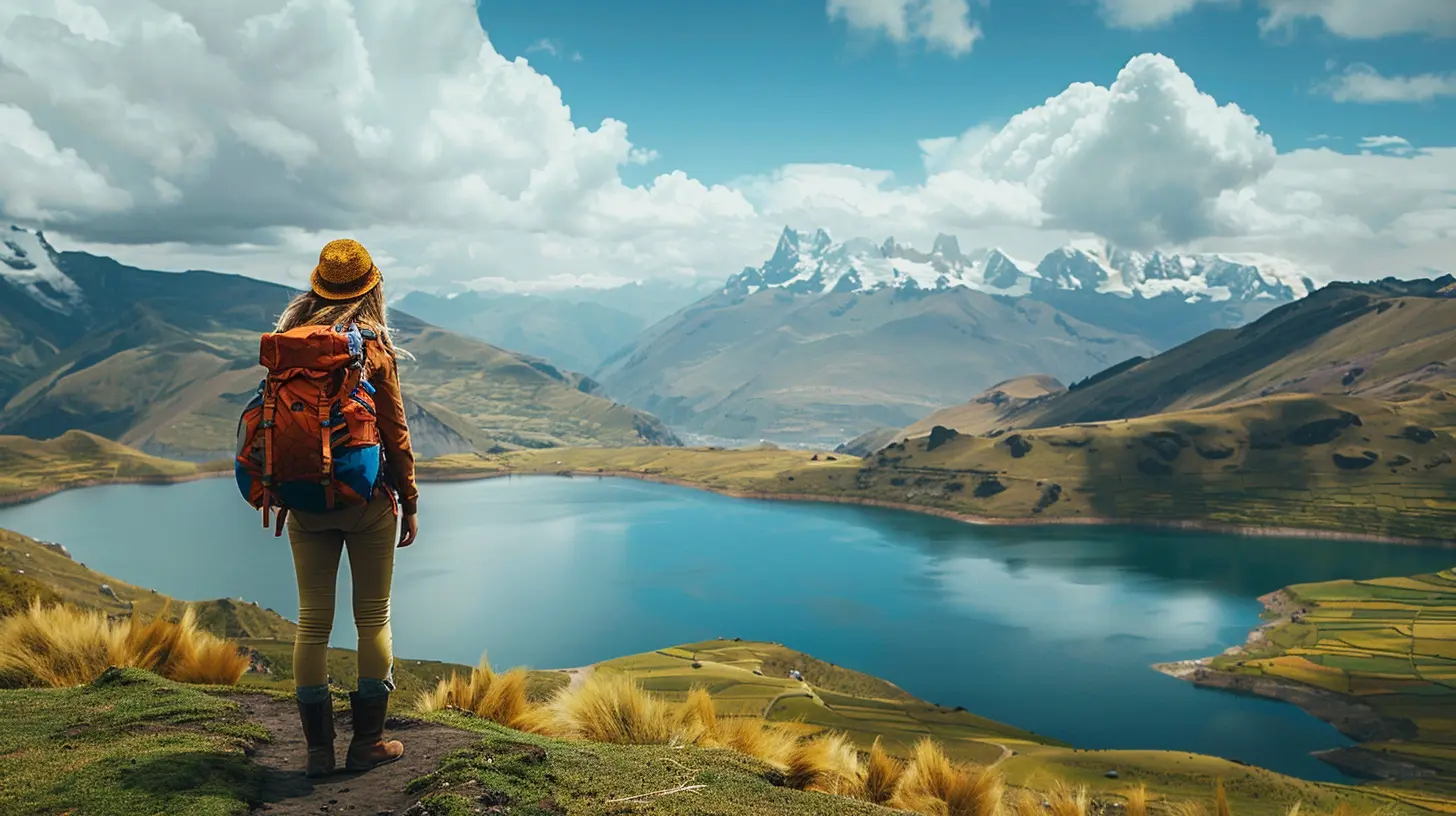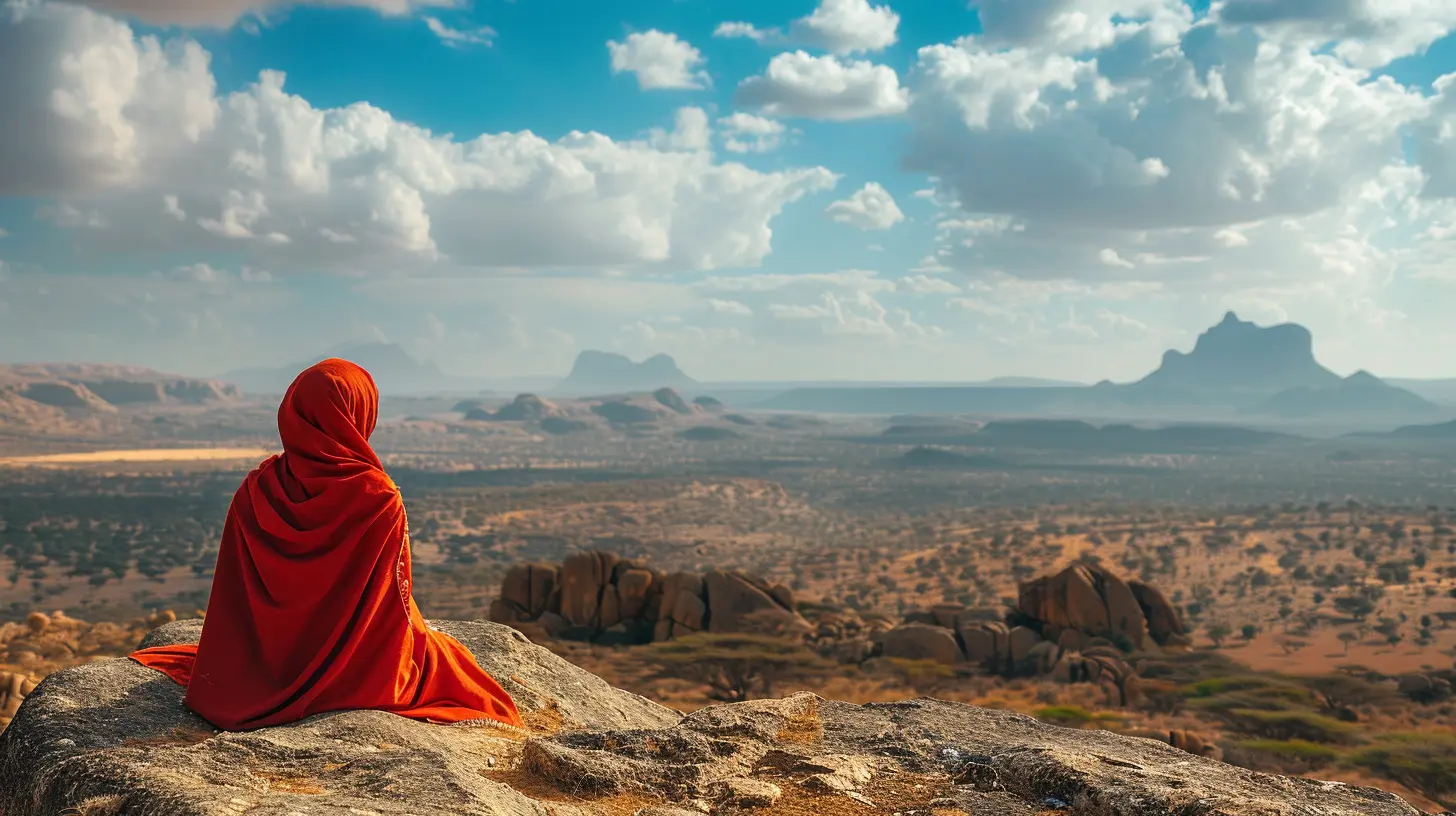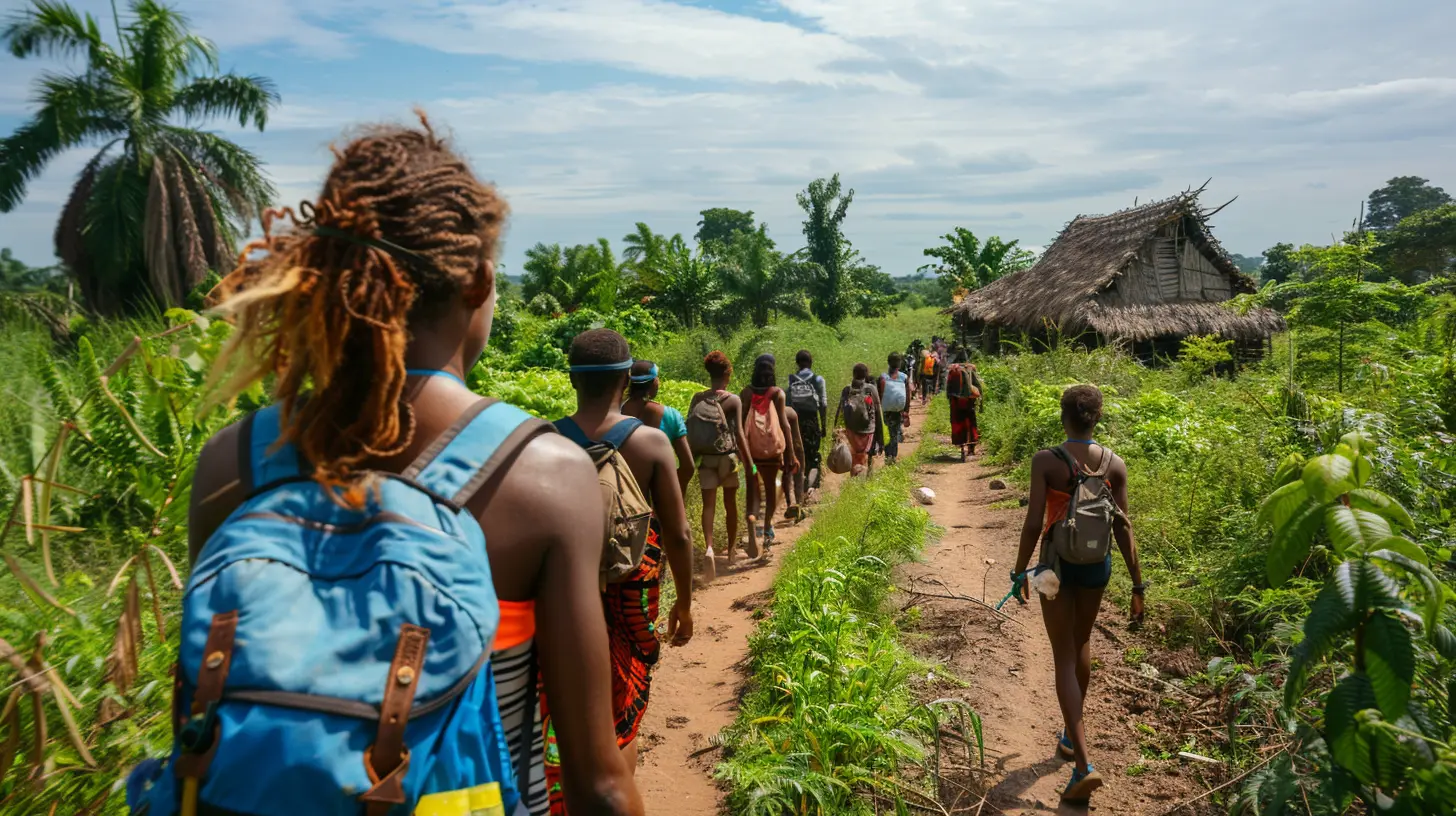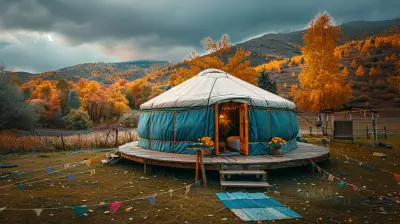Volunteering in Remote Areas: Exploring Hidden Corners of the Globe
23 August 2025
Have you ever caught yourself daydreaming about escaping the humdrum of daily life to do something meaningful in a place no one’s ever heard of? Somewhere off the beaten track, where time moves slowly, the skies are clear, and the people greet you with genuine smiles? Well, volunteering in remote areas might just be the soul-refreshing journey you didn’t know you needed.
This isn’t your average vacation. You won’t be lounging by the pool sipping cocktails—but what you do get is a deep sense of purpose, raw cultural immersion, and stories that will outshine any trip to a five-star resort.
So, buckle up! We're diving into how volunteering in far-flung corners of the earth can enrich your life while making a real difference in someone else's.
Why Volunteer in Remote Areas?
Let’s face it, anyone can sign up for a volunteer shift in a big city. But when you step into a remote village where volunteers rarely go, your impact is much louder, much deeper.1. Real Impact Where It's Needed Most
Many remote regions aren’t on the radar for traditional aid or development projects. These are places where access to healthcare, clean water, education, or sustainable farming techniques is extremely limited. By volunteering here, you bring in not only manpower but also fresh perspectives, skills, and resources.Think about it—teaching English in a Himalayan village or helping build eco-friendly homes in a Pacific island lagoon. Your effort doesn’t get lost in bureaucracy. It matters.
2. Cultural Exchange at Its Purest
In mainstream destinations, cultures often get "marketed" for tourists—watered down, curated, Instagram-ready.In contrast, remote communities invite you into their real lives. You eat what they eat, follow their customs, and slowly begin to see the world through their eyes. There’s an honesty in the exchange—no tour guides, no brochures—just people, sharing stories over shared meals.
3. Personal Growth on Overdrive
Let’s be real: being in a far-off land, adapting to limited resources, working with a language barrier—it’s tough. But it’s in this discomfort that magic happens.You develop resilience, empathy, and skills that a textbook could never teach. Plus, you learn to live with less and appreciate more.
Choosing the Right Volunteer Project
Before you pack your bags, let’s talk strategy. Not every project is created equal, and you don’t want to end up doing more harm than good.1. Match Your Skills with Local Needs
You don’t have to be a doctor or engineer. Maybe you’re great with kids, handy with tools, or have a killer green thumb. The key is finding a project where your skills translate into value.Some popular programs in remote areas include:
- Teaching English or other languages
- Community health education
- Wildlife conservation
- Sustainable agriculture
- Infrastructure projects (like building schools, latrines, wells)
2. Research Ethical Organizations
Not all volunteer programs operate ethically. Some exist just to pocket your “program fee.”Look for organizations that:
- Work closely with local communities
- Train and support their volunteers
- Are transparent about where your fees go
- Focus on sustainable, long-term impact
Reviews and testimonials can be golden here. Don’t be shy—email past volunteers and ask about their experiences.
Adapting to Life Off the Grid
When they say "remote," they mean it. Think: no Wi-Fi, unpredictable electricity, bucket showers, and the occasional chicken joining you for breakfast.1. Ditch the Comfort Zone
You might be sleeping in a hammock, sharing meals on the floor, or fetching water from a pump—but guess what? You’ll adapt. And when you do, these “inconveniences” become charming quirks.Pro tip: bring basic comforts like a solar charger, reusable water filter, or a travel journal—you’ll thank yourself later.
2. Respect the Culture
Dress modestly, listen more than you speak, and follow local customs even if they seem odd. You’re not there to change people; you’re there to walk beside them.A smile and open-mindedness go a long way.
Incredible Remote Volunteering Destinations
Now, let’s talk about the where. There are hidden gems across every continent. Here are a few that’ll spark your wanderlust:1. Nepal’s Mountain Villages
Nestled in the Himalayas, small Nepali villages offer opportunities to teach, help rebuild infrastructure, or work in rural health clinics. The backdrop? Breathtaking mountains and ancient traditions.2. Madagascar’s Forest Communities
Home to some of the world’s most unique wildlife, Madagascar is ideal for volunteers in conservation and sustainable farming. Expect to work closely with local tribes while helping preserve endangered ecosystems.3. The Amazon Rainforest
Volunteering with indigenous tribes or conservation NGOs deep in the jungle is not for the faint-hearted. But if you’re brave enough, the reward is unparalleled.4. Vanuatu’s Outer Islands
These remote Pacific islands need help with building, education, and disaster recovery. You’ll experience traditional Melanesian culture and untouched natural beauty.5. Arctic and Inuit Communities in Canada & Greenland
Yes, it’s cold. But it’s also an incredible opportunity to work with communities tackling climate change, mental health, and sustainable living.Challenges You Might Face (and How to Own Them)
Let’s be honest—it’s not always sunshine and rainbows. But every challenge has a silver lining.1. Language Barriers
You probably won’t be fluent in local dialects. That’s okay.Learn basic phrases, use gestures, and smile a lot. Language apps or offline translation tools can be lifesavers.
2. Homesickness
Being far from home can tug at your heartstrings. Stay connected when you can, but also immerse yourself in forming bonds with locals and fellow volunteers. It helps more than you think.3. Limited Resources
You’ll learn to be creative. Whether it’s teaching without a blackboard or cooking with minimal ingredients—you become a master of improvisation.Tips for a Meaningful Volunteer Experience
Want your time in a remote area to be both memorable and impactful? Here’s how to make it count:1. Go in With Humility
You’re not there to “save” anyone. You’re simply offering your time and skills while learning from the community in return.2. Stay Longer, if Possible
The longer you stay, the deeper your impact. Plus, you’ll build real relationships and gain trust—a crucial element in volunteer work.3. Keep a Journal
Write down everything—your thoughts, cultural tidbits, daily chores—because your future self will thank you.4. Share Thoughtfully When You Return
Talk about your experiences, but avoid turning them into “poverty porn” or dramatic savior stories. Be authentic. Share the beauty, the struggles, the connections.The Hidden Benefits No One Tells You About
Here’s the part they don’t include in volunteer brochures:- Perspective Shift: The things that once stressed you out may suddenly seem small.
- Newfound Skills: Problem-solving, teamwork, leadership—you’ll level up in more ways than one.
- Career Boost: Recruiters love unique experiences that show initiative and adaptability.
- Global Friendships: You’ll create bonds that transcend borders and last a lifetime.
Volunteering vs. Voluntourism: Know the Difference
Let’s clear this up once and for all.- Volunteering is community-driven, collaborative, and long-term focused.
- Voluntourism is tourist-driven, often short-term, and sometimes more about selfies than actual help.
Always ask yourself: “Am I doing this for others, or for my own resume?” The intention matters more than anything.
Packing Essentials for Remote Volunteering
Packing smart is crucial when you’re heading into the unknown. Here are must-haves:- Sturdy shoes and weather-appropriate clothes
- Solar-powered charger and headlamp
- Refillable water bottle with built-in filter
- First aid kit and basic meds
- Notebooks, pens, and educational material
- A lightweight towel and toiletries
- Snacks (nuts, dried fruit—lifesavers in remote areas!)
Wrapping It Up: A Journey That Transforms You
At its core, volunteering in remote areas is about connection—between people, cultures, and the environment. It's not a one-way street. You give your time and effort, yes. But in return, you receive life lessons richer than any textbook, friendships deeper than any travel buddy, and memories that’ll make your heart full every time you close your eyes.So, if you’re craving something raw, real, and ridiculously rewarding—maybe it’s time to pack your bags and head where Wi-Fi can’t find you.
Because out there, in the forgotten pockets of the planet, your presence matters.
all images in this post were generated using AI tools
Category:
Volunteer TravelAuthor:

Winona Newman
Discussion
rate this article
2 comments
Miranda McKale
What a wonderful perspective on travel! Volunteering in remote areas not only uncovers hidden gems but also connects us to local cultures in meaningful ways. The memories made and friendships formed are truly priceless. It’s a beautiful reminder that adventure awaits in the most unexpected places!
November 13, 2025 at 4:03 AM

Winona Newman
Thank you! I'm glad you resonate with the beauty of volunteering and the deep connections it fosters. There truly is magic in those hidden corners!
Tate Rogers
What a fantastic way to experience the world! Volunteering in remote areas not only allows you to immerse yourself in unique cultures but also makes a positive impact. Can't wait to explore these hidden gems!
August 25, 2025 at 2:21 AM

Winona Newman
Thank you! I'm glad you resonate with the experience. Volunteering truly enriches both the traveler and the communities involved!


